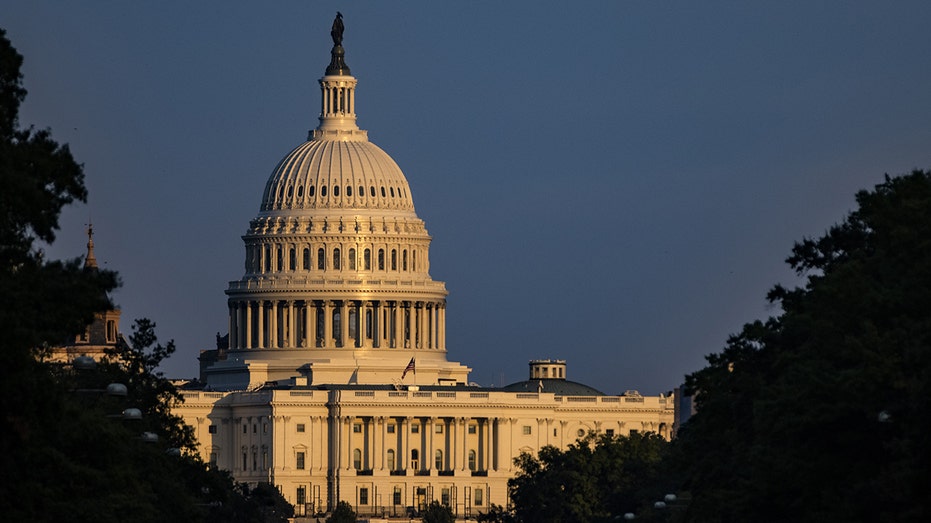Arizona AG urges Congress to reject Biden's IRS bank reporting rule: 'Unfettered power grab'
Brnovich urges congressional leaders to 'listen to banks,' reject Biden's IRS bank-account monitoring plan
GOP lawmakers slam Biden’s IRS bank account monitoring plan
Senator Mike Crapo joins ‘Kudlow’ to slam the Biden administration over the controversial proposal.
Arizona Attorney General Mark Brnovich urged the top four congressional leaders in a letter this week to reject a Biden administration proposal that would force banks to turn over most customers' account information to the Internal Revenue Service, even after the White House agreed to narrow the scope of the policy.
"Should this proposal be codified into law, it would be yet another dangerous, unfettered power grab by the federal government," Brnovich wrote in the letter, sent Wednesday. "It would also be a higher cost of doing business for financial institutions, especially community banks."
Under the new plan that Senate Democrats unveiled Tuesday, banks, credit unions and other financial institutions would be required to report annually on accounts with deposits and withdrawals worth more than $10,000, rather than the $600 threshold that President Biden initially proposed.
FED'S INFLATION GAUGE SOARS BY MOST IN 30 YEARS
The Treasury Department has endorsed the pared-back plan, which comes following a steady lobbying campaign from banking groups and other industry organizations in addition to fierce pushback from Republican lawmakers who amounted it to the worst type of government overreach.

This April 13, 2014, file photo shows the Internal Revenue Service (IRS) headquarters building in Washington. (AP Photo/J. David Ake, File)
Brnovich, a Republican who's running in Arizona's hotly contested GOP primary to replace Sen. Mark Kelly, asked Capitol Hill lawmakers to listen to banks and financial groups that are warning the measure – even though its reach is smaller – presents potential financial privacy risks for customers while increasing compliance costs for banks and adding to the already existing burden the industry faces in turning over information to the government.
"Congress should consider and address these institutional concerns before moving forward with any such law," Brnovich wrote, citing a September letter from more than 40 banks that asked lawmakers to vote against the IRS proposal. In the letter, the financial institutions warned the plan could create a "tremendous liability" for all involved by requiring the collection of financial information for the majority of Americans "without proper explanation of how the IRS will store, protect and use this enormous trove of personal financial information."
G-7 LEADERS HAMMER OUT A GLOBAL MINIMUM TAX FOR MULTINATIONAL COMPANIES
"This proposal would create significant operational and reputational challenges for financial institutions, increase tax preparation costs for individuals and small businesses, and create serious financial privacy concerns," they wrote. "We urge members to oppose any efforts to advance this ill-advised new reporting regime."
The White House has repeatedly defended the plan, writing in a memo to congressional Democrats that requiring banks and financial institutions to provide a "little bit of high-level information" to the IRS on account flows gives the agency more information about wealthy Americans' earnings from investments and business activity. Recipients of federal benefits like unemployment and Social Security would be exempt from the policy, which would also exclude any income received through a paycheck in which federal taxes are automatically deducted.
CLICK HERE TO READ MORE FROM FOX BUSINESS
"This is a well-reasoned modification: for American workers and retirees, the IRS already has information on wage and salary income and the federal benefits they receive," a Treasury Department fact sheet on the changes said.

The U.S. Capitol in Washington, D.C., on Sunday, Oct. 3, 2021. The global economy is entering the final quarter of 2021 with a mounting number of headwinds threatening to slow the recovery from the pandemic recession and prove policy makers' benign v (Samuel Corum/Bloomberg via Getty Images / Getty Images)
Banks are already required to report any transaction that exceeds $10,000 to the Financial Crimes Enforcement Network – part of anti-money laundering requirements.
The Biden team has stressed that banks will not have to report individual transactions to the IRS, but rather "basic, high-level information on account inflows and outflows" and that audit rates for Americans earning less than $400,000 annually would not go up.





















